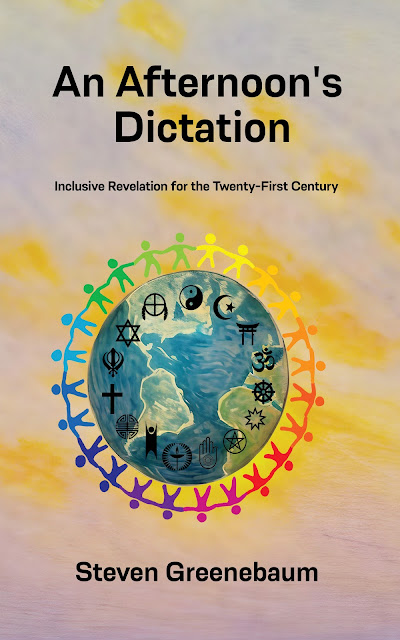Daily Excerpt: An Afternoon's Dictation (Greenebaum) - The Call to Interfaith, Chapter Two

Today's book excerpt comes from An Afternoon's Dictation by Steven Greenebaum . This book has been in the Amazon top 100 among interfaith and ecumenical books on many occasions. PART ONE: THE CALL TO INTERFAITH CHAPTER TWO “Religion is but a language for speaking to Me.” It’s hard to overstate how crucial this revelation was. In the 50 years of my life that preceded the revelation, that thought had never once occurred to me, now that it was laid in in my lap it made perfect sense. It made sense and answered a bucket-full of questions. The first and most pressing question it answered for me was this: if there were indeed one and only one “right” answer to the question of God and how to relate to God, why didn’t humanity know what that answer was? After thousands upon thousands of years, why were there so many differing answers? The ancient Greeks were no dummies. They’d gifted us Sophocles, Socrates, Aristotle, Plato, and so many other brilliant thin...


